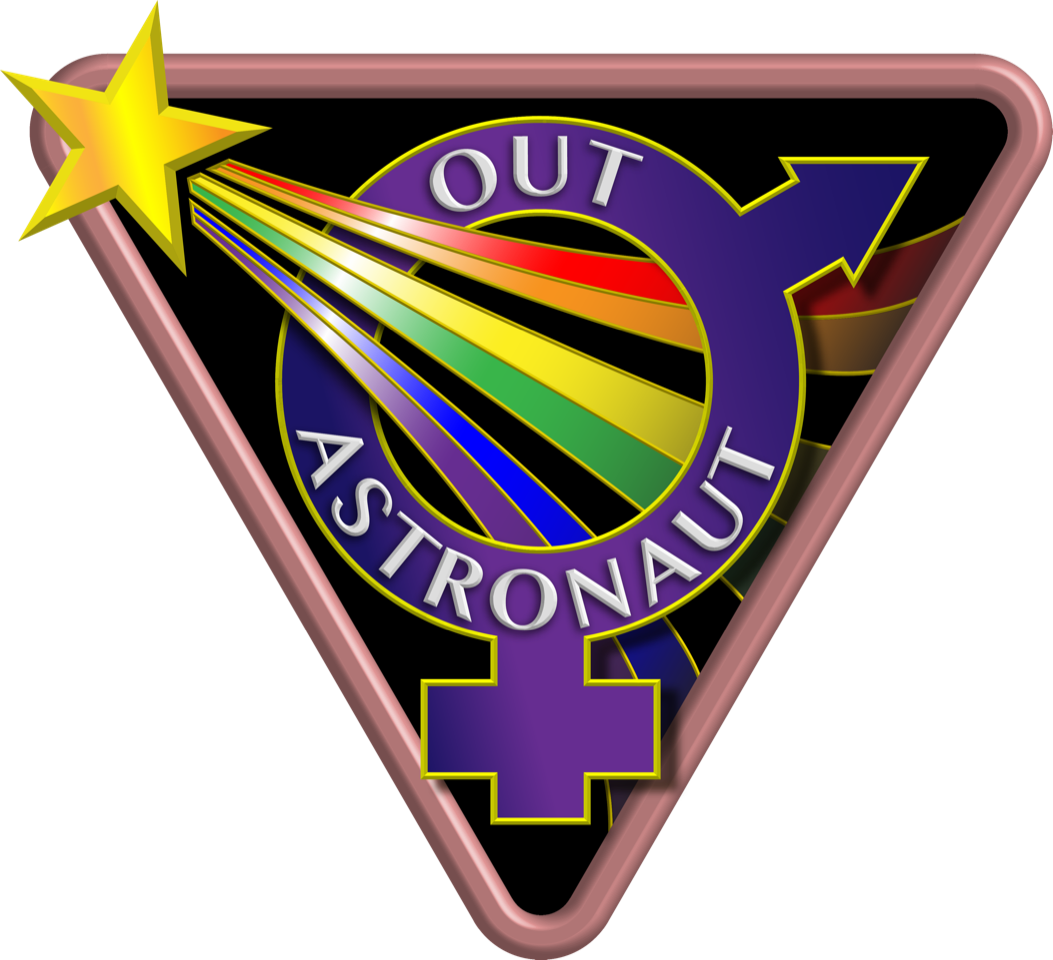Out Astronaut LGBTQ+ Advisory Board
LTJG Frank Centinello
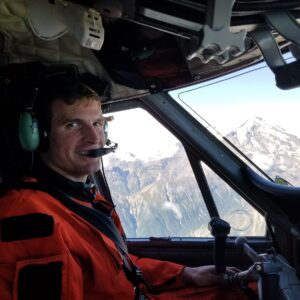
LTJG Frank Centinello is a DHC-6 pilot with the National Oceanic and Atmospheric Administration (NOAA) Commissioned Officer Corps serving various research missions throughout the United States including hydrologic research, coastal mapping marine mammal surveys as well as emergency response missions. He received his Ph.D. from MIT in 2015 in geophysics for work on orbit determination and gravity modeling for the Dawn mission at Vesta, as well as for terrestrial gravity modeling using airborne measurements. He holds an M.S. and B.S. in aerospace engineering from the University at Buffalo, with a focus on guidance, navigation and control. In his professional career, Frank served as a camera operator for the Lunar Reconnaissance Orbiter, as well as an aerospace engineer supporting orbit determination and ionospheric research for the Air Force Research Laboratory. Frank is gay, and prior to all this, he attended the US Air Force Academy, from which he resigned in 2001, due to his desire to serve without the burden of the “don’t ask, don’t tell” policy. Frank’s extracurricular passions are science outreach and travel. He frequently talks to K-12 audiences. He was an invited speaker at the Boston Museum of Science from 2009-2014, and he is currently researching founding a museum dedicated to planetary sciences.
Mx. Mal Crisp
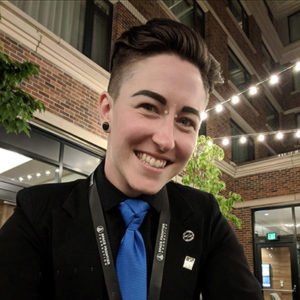
Mx. Mal Crisp is a transgender nonbinary engineering student, passionate about spaceflight and queer representation within the industry. June 2018, they were pinned as an Advocate of the Space Frontier Foundation, a non-profit organization of people dedicated to opening the space frontier to human settlement, and Mal uses these connections to further advocacy for the queer community in this field. Mal also operates a platform for nonbinary and trans visibility in S.T.E.A.M. under the name “Genderqueer Rocketeer” (Instagram, Twitter).
Dr. Tessa Fisher
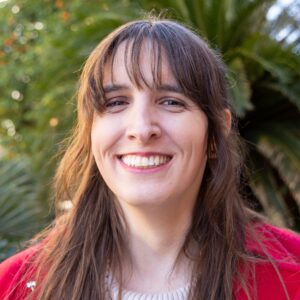
Tessa Fisher is a post-doctoral researcher at the Steward Observatory at the University of Arizona, and possibly the world’s only openly trans lesbian astrobiologist. A member of the Alien Earths NASA NExSS team, her research is largely focused on using advanced mathematics to develop better ways of detecting the presence of life and/or technology on exoplanets, based on their atmospheric composition. Originally hailing from northwest Virginia, she received a double B.A. in astronomy and biology from the University of Virginia. From there, she went on to receive an M.S. from Washington State University in Environmental Science with a focus on microbial ecology in extreme environments. For her doctorate at Arizona State University, she helped develop new techniques derived from network theory and complex system science to detect the presence of biospheres on exoplanets. When she was 12, she promised herself she would apply to the astronaut corps–a promise she has since fulfilled! When she’s not doing science, her hobbies include burlesque dancing, singing in the Phoenix Women’s Chorus, yoga, and writing LGBTQ-positive science fiction and fantasy. Some of her short fiction has been published in Fireside Magazine, Analog, and Baffling, amongst other venues. She and her wife reside in Tempe, along with a fairly aloof bearded dragon.
Mr. Adrien Mauduit
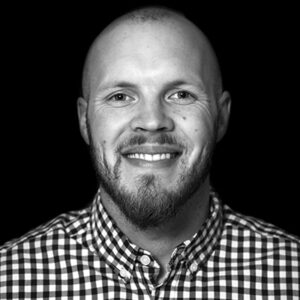
Adrien Mauduit currently works as a self-employed professional photographer and film maker (Night Lights Films) focused on showing the beauty of our night sky in a fun, educational and innovative way. When the sun goes down he points his cameras to the sky to record aurorae, milky way, moon, noctilucent clouds or other celestial phenomena. Adrien owns a M. Sc. in agro-ecology, water and soil resources and landscape management from the IPLB, Beauvais, France and a B. Sc. in biology/geology from the Lycée Clémenceau, France. He also currently serves as the science and EPO communication coordinator for Project PoSSUM and has contributed to several PoSSUM campaigns (2 NLC campaigns, Spacesuit testing Ottawa…) by helping to collect data, improve camera systems or recording behind-the-scenes for EPO. Adrien was born in France but has studied and worked in multiple countries (Canada, US, Denmark, Norway) for a period of ten year now and can speak 5 languages. As a board member for #outastronaut Adrien aims to make the cosmos more accessible for all, broaden the love for space science and empower aspiring members of the LGBTQ community by putting stars in their eyes.
John Noone
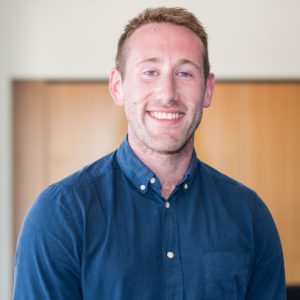
Mr. John Noone is a physiologist with a background in physical (in)activity, molecular biology and sport management – managing the development of the first ever triathlon in Azerbaijan (Baku 2015, European Games). He is currently based in the National Institute for Cellular Biotechnology (NICB), Dublin City University, Ireland where he conducts research in conjunction with the European Space Agency. John’s research has specific focus in space flight on the metabolic adaptations of skeletal muscle to these extreme environmental stressors, developing cellular and human models to mimic these stressors. In conjunction with the ESA, John studies novel ways to counteract the negative effects of space travel on the body (nutritional supplementation, resistance vibration exercise etc.) while putting clarity to certain cellular signalling cascades associated with these environments (space flight, exercise etc.). John believes that space flight is an excellent model of physical inactivity underlining why the relevance for researching in this field exceeds space exploration. In conjunction with his research, John also plays for the Emerald Warriors rugby football club, where he has been an avid member since August 2017, helping his team reach its highest ever position in our history finishing joint 7th in the Bingham Cup (rugby world cup for LGBT clubs) hosted in Amsterdam in 2018.
Dr. Edgard Riviera-Valentin
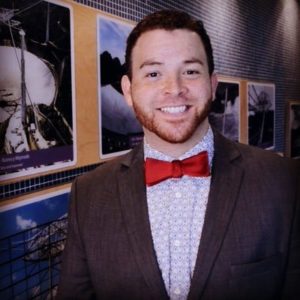
Edgard G. Rivera-Valentín is a Planetary Scientist with Universities Space Research Association (USRA) at the Lunar and Planetary Institute (LPI). Ed’s research has trekked the Solar System from Mercury out to the icy moons of Saturn, specifically studying the interaction between planetary processes, such as exchanges between the atmosphere and surface, and how impact cratering alters planetary surfaces and interiors. Having grown up by the monumental Arecibo Observatory in Puerto Rico, Ed was inspired to pursue science since childhood. Rivera-Valentín went on to receive bachelor’s degrees in Physics and Mathematics from Alfred University in Alfred, NY and a Ph.D. in Space and Planetary Sciences from the University of Arkansas in Fayetteville, AR. After a two-year postdoctoral research fellowship at Brown University in Providence, RI, Ed returned home as a staff scientist at Arecibo Observatory. Using the world’s most powerful planetary radar, Ed, along with the planetary radar team, worked to track and characterize near-Earth objects in order to inform planetary defense strategies. Now at the LPI, Rivera-Valentín continues radar work by combining observations made at Arecibo with lab work in the Planetary Radar Investigation, Demonstration, and Exploration (PRIDE) Lab, a lab under development by USRA and led by Ed.
Mr. Max Showalter
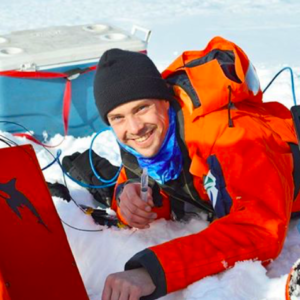
Max Showalter is a PhD candidate working toward a dual degree in Oceanography and Astrobiology at the University of Washington. He studies the adaptations of bacteria and their viruses to the extreme environmental conditions of sea ice as an analog of potential life on icy moons. This work has brought him to both ship- and land-based field sites in the Arctic and Antarctic. Outside of the natural sciences, Max studies Inuktitut and the Inuit role in establishing policies of environmental security in the Arctic, thinking on how the internationalism of the Arctic Council could provide a framework for future diplomacy in space. Max also spends his time working with Sea Talk, an internal group aimed at preventing harassment on research vessels, where he hopes to highlight the challenges and dangers facing gay scientists in the field. He has a background in Biological Engineering from Purdue University.
Mr. Paul Sokoloff
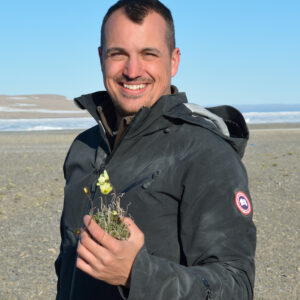
Mr. Paul Sokoloff is a botanist at the Canadian Museum of Nature in Ottawa. Paul received his B.Sc. from Carleton University in 2008, and an M.Sc. in botany from the University of Ottawa in 2010, and has been working as a senior research assistant in the botany division at the museum ever since. Following a trip to Victoria Island in Canada’s Western Arctic in 2010, Paul seeks any opportunity he can to get back to Nunavut and the Northwest Territories, and is now a veteran of nine Arctic expeditions, including recently a leg of the Canada C3 Expedition. Paul’s interest in analog astronautics began with a two week rotation at the Mars Desert Research Station in southern Utah back in 2014, and he was recently the Co-PI for the Arctic leg of the Mars Society’s Mars 160 mission.
Request a Speaker
Our advisory board members frequently volunteer to talk to your about LGBTQ+ people in science and space! If you would like to request a member of the Out Astronaut LGBTQ+ Advisory Board talk to your school or organization, please make the request through the ‘Contact’ page.
